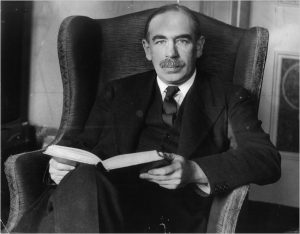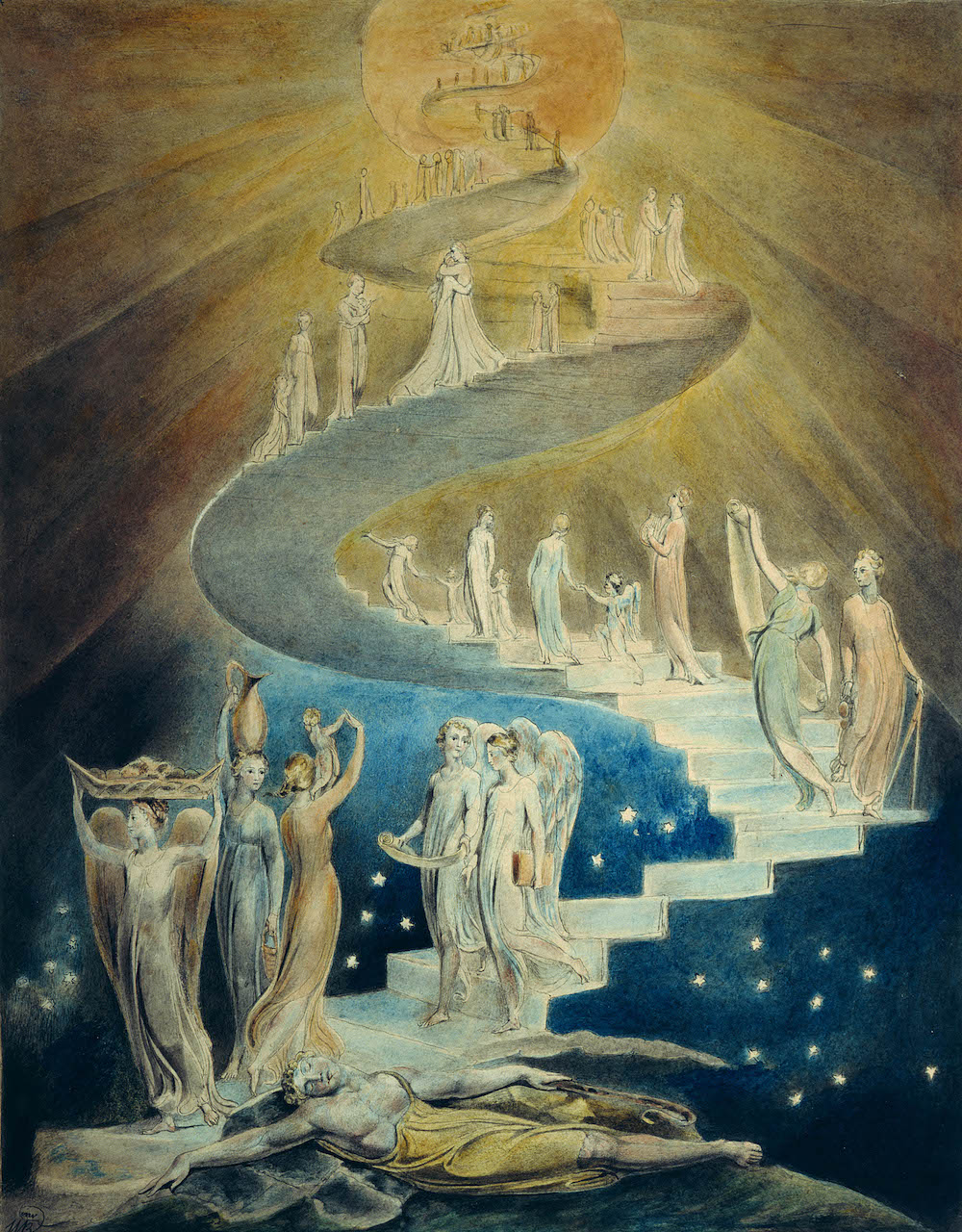The following is the second installment of a lecture delivered to the faculty and students of the Research Platform on Religion and Transformation from the University of Vienna at Melk Monastery (Austria) on July 26, 2016. The link to the first installment in Religious Theory can be found here. Select portions of this essay appeared earlier in the online publication Political Theology Today
III.
But what Foucault misses, according to Lazzarato in his analysis of the genesis of the biopolitical apparatus, is how the “virtuous” and “humanitarian” secular democratic state, which deliberately sought to replace the political imago of the Catholic church as the guarantor of what today we would term “social justice”, was founded on a grand economy of both debt and indenture. One can easily read Dostoevsky’s parable of the Grand Inquisitor in this manner.
Drawing his arguments from on-the-ground study of workers and employment trends, Lazzarato is perhaps the first, genuine critical theorist of the “knowledge-based economy”. Lazzarato has devised the notion of “immaterial labor” as the key instrument of exploitation throughout the neoliberal order. For Lazzarato, capitalism from its beginnings has always been founded on expropriation, i.e., “capture.” Whereas nineteenth century capitalism expropriated the labor of the working class, the post-industrial, neo-liberal order has expropriated the future financial capacities of Richard Florida’s new “creative class” through an ever expanding apparatus of debt and financialization.
In his book Governing By Debt Lazzarato describes the present day private university — in particular, the American university — as the primal scene of exploitation in the same way the factory could be characterized in the nineteenth century. “In the production of knowledge,” Lazzarato writes, “class division no longer depends on the opposition between capitalists and wage-earners but on that between debtors and creditors. It is the model the capitalist elites would like to apply to all of society.”1 But this debt, which he calls the “debt of life,” is founded as well on a cultural and socio-psychological agency of capture which neoliberalism exploits quite effectively. Debt and guilt are interchangeable signifiers in this process, as the dual meaning, for example, of the German word Schuld implies.
The university “expropriates” the individual self-worth as well as the financial assets of the new, highly educated “indentured servant”, which the neoliberal order simultaneously demands become a responsible “global citizen,” one who is constantly “sensitive”, self-conscious, and prepped to make amends for their privileged status vis-a-vis multitudes of disenfranchised “others” (while donating to grand political and social causes) through constant re-education, personal re-invention, and a willingness to sacrifice for the greater good in ways that ultimately benefit primarily the ruling elites of the world.
The uneducated – the now obsolete menial laborers who still inhabit the economically faltering knowledge societies – are cast as the moral scapegoats in the same way people of color were throughout the colonialist and industrial eras, as David H. Freedman notes in his caustic article in The Atlantic entitled “The War on Stupid People.” Because these “useless”, uneducated holdovers from a bygone era of industrial production have frequently retained the chauvinism and biases that were systematically employed to set them against other wage earners in previous generations, the same divide-and-conquer strategy has now been ruthlessly engineered by the neoliberal elites themselves to camouflage the reality of the new system of exploitation, which casts its net over peoples of all colors.
Just as Marx called religion the “opium” of the masses a century and a half ago, so excessive types of  secular idealistic political crusading could in many instances be considered the heroin of the degreed classes. As various writers have emphasized in recent months, the promise of neoliberalism was always that worker sacrifices, including the breakup of unions, longer working hours, deferred employment through a commitment to higher education would “lift all boats,” as the saying went, and usher in a new era of productivity and prosperity. While productivity has increased, prosperity has not, and it is those who are the bottom of the economic food chain who are the ones who are showing the first, real signs of rebellion.
secular idealistic political crusading could in many instances be considered the heroin of the degreed classes. As various writers have emphasized in recent months, the promise of neoliberalism was always that worker sacrifices, including the breakup of unions, longer working hours, deferred employment through a commitment to higher education would “lift all boats,” as the saying went, and usher in a new era of productivity and prosperity. While productivity has increased, prosperity has not, and it is those who are the bottom of the economic food chain who are the ones who are showing the first, real signs of rebellion.
Although such an “economy” had been interwoven for centuries with the “pastorate” itself — a phenomenon which when driven to excess by the Renaissance popes helped to spark the Protestant Reformation — there was always within all variations of Christianity the built-in breaker of Jesus’ ethical and spiritual teachings of the Sermon on the Mount. In other words, the pastorate in its “cure” of bodies and souls was always compelled to temper the pain of debt with forgiveness. Secular biopolitics as the heir to the pastorate has never had such a constraint. In fact, according to Lazzarato, the biopolitics of the neoliberal order is incorporated at its very power centers on the dispensation, regulation, perpetuation, and discursive dissimulation of indebtedness.
In The Making of Indebted Man Lazzarato shows how under neoliberalism the “subjectivity” of a caring society is alchemized through the magic of political rhetoric into a thoroughly instantiated and embedded system of personal liability and fieflike servitude. “It is debt and the creditor-debtor relationship that make up the subjective paradigm of modern-day capitalism, in which ‘labor’ is coupled with ‘work on the self,’ in which economic activity and the ethico-political activity of producing the subject go hand-in-hand.2 Such “work on the self,” can be the entrepreneurial praxis of what in popular lingo is known as “self-help” and “motivational” training, which is usually geared to some kind of profitable economic enterprise.
That, of course, is not to be confused with Weber’s notion of a “worldly asceticism”, which characterized the Protestant ethic as the moral template for early merchant capitalism. The latter modality of “work on the self” was always, to employ Kant’s famous terminology, enjoined strictly by an “imperative of pure practical reason.” It had no utilitarian end in view whatsoever. It was what today we call “de-ontological.” It amounted to a striving for “holiness” and was purely soteriological.
In contrast, the neoliberal version of self-entrepreneurship never relied on any strategy of seeking after righteousness. It was always a quest for personal satisfaction. In a word, it was the groundplan, as Daniel Bell noted over a generation ago in his Cultural Contradictions of Capitalism, for a broad, socio-psychological shift from a morality of maximized productivity and deferred gratification to incentivized self-indulgence – ie., the inverted “imperative” to consume which lubricates the wheelworks of consumer capitalism nowadays on a global scale.
IV.
In line with Harvey’s assessment it becomes easy to see that the imperative to consume cloaks itself in the “evaluative” patois of personal freedom, the very generative grammar of neoliberalism with its honey-tongued celebration of “rational actors” making choices that ultimately confirm the wisdom of “markets.”
But, as Lazzarato points out, “the debt economy is characterized not only by antiproduction but also by what we might call antidemocracy.”3 He cites the way in which the Greeks in the summer of 2015 were subjected to ferocious austerity measures by both the International Monetary Fund and the European Union. Harvey, a well-known historian as well as theoretician, stresses that neoliberalism was always a system of co-optation or, as Gilles Deleuze and Felix Guattari call it, an “apparatus of capture.” In a nutshell, neoliberalism has captured the moral passions and sentimentality of educated cultural progressives in the developed world to advance the causes of the new planetary “captains of industry.”
According to Harvey, neoliberalism was launched in the 1970s as a counterpunch by economic elites against the ascendancy of the “social state” in the postwar era that forced upon them income redistribution through taxation and the effective enfranchisement for the first time of organized labor. According to Harvey, “an open project around the restoration of economic power to a small elite would probably not gain much popular support. But a programmatic attempt to advance the cause of individual freedoms could appeal to a mass base and so disguise the drive to restore class power.”4
Neoliberalism picked up and preyed upon the street cries of political radicals for the loosening of restrictions by the state on moral behavior as well as more individual autonomy and “grass-roots” control of social and educational institutions. The ubiquitous New Left slogan of “freedom now”, expropriated from the traditions of Western liberal political economy itself, became the basis for what Nietzsche would call the “revaluation” of all organizational value-standards and norms for evaluation.
At the same time, it hybridized this libertarian proclivities with the newfound rage for “social justice,” building upon the realization among the swelling numbers of the college educated that the historic ideals of liberty and equality had been severely compromised by the concentration of state power since the early twentieth century. In Harvey’s words, “neoliberal rhetoric, with its foundational emphasis upon individual freedoms, has the power to split off libertarianism, identity politics, multi-culturalism, and eventually narcissistic consumerism from the social forces ranged in pursuit of social justice through the conquest of state power.”5
The result, Harvey argues, was the creation of a new more “socially conscious”, meritocratic ruling class which, particularly after the collapse of Communism, employed various political “wedge issues” to gain political dominance and gradually economic hegemony, which became the adhesive for its new, expanding global empire.
 The financial crisis of 2008 was indeed the output of predatory lending practices. But it was also promoted by both the Clinton and Bush administrations as a strategy for increasing home ownership among previously marginalized groups – a classic tactic of neoliberalism. The fact that the banks which had sponsored this predatory lending were immediately bailed out by the very government that had backed them (unlike in previous crises where financial institutions take the hit) under the pretext of forestalling the social chaos which its very practices had engendered.
The financial crisis of 2008 was indeed the output of predatory lending practices. But it was also promoted by both the Clinton and Bush administrations as a strategy for increasing home ownership among previously marginalized groups – a classic tactic of neoliberalism. The fact that the banks which had sponsored this predatory lending were immediately bailed out by the very government that had backed them (unlike in previous crises where financial institutions take the hit) under the pretext of forestalling the social chaos which its very practices had engendered.
Neoliberalism seduces with the promise of freedom, but ends up disenfranchising those who are caught up within it while slapping on the irons of debt servitude. In the end, according to Lazzarato, it can only “govern the economy through drastic limits to democracy and a no less drastic drop in the expectations of the governed.”6 Lazzarato draws on the anthropology of Nietzsche to make the case that the substitution within the neoliberal order of the much vaunted mechanism of exchange (so-called “democratic capitalism”) for the debt regime is the direct result of this seduction. There is no “zero point” from which economic relationships historically emanate. They all begin with initial conditions of dependency and domination.
The concept of economic exchange, mirroring the fiction of the social contract, assumes a voluntaristic set of primal social relationships, when in fact the universal, abject condition that Freud described as “hunger and love”, or basic need and extravagant desire, inevitably prevent the possibility of any original equilibrium as fantasized by the classical political economists. The neoliberal “social state”, which pretends to overcome all historical disequilibrium to the extent that it claims to regulate the means of production while distributing fairly and justly the fruits of collective labor, becomes a “total” system of “capture” — i.e., “expropriation” in the traditional, Marxian sense — of the lives and livelihoods of those who are inscribed within it. The cycle itself is self-reinforcing.
In Governing By Debt Lazzarato argues that the “democratic” promise of future consumption by the neoliberal state betokens a crisis that “does not reveal a mere economic failure but rather a breakdown in the political relationship between appropriation, distribution, and production. Growth cannot pull us out of the crisis, only new principles of appropriation, ownership, and production can.”7 The growth of the system is inseparable from the growth of the state and its un-democratic machinery of capture.
Interestingly, Lazzarato in the second chapter of Governing By Debt singles out the American university as the ganglion of the neoliberal debt-capture-expropriation machine. He characterizes the university itself as “the model of the debt society.” According to Lazzarato, “the American student perfectly embodies the condition of the indebted man by serving as a paradigm for the conditions of subjectivation of the debt economy one finds throughout society.”8 The fact that almost 70 percent of students graduating from American universities have financed their education through loans, and many with enormous sums, means that even the most highly sought-after forms of employment are but glorified versions of nineteenth century menial labor where every day workers, as the old song goes, got “another day older and deeper in debt”.
The federal government, or the private banks whose student lending operations are secured by the government with no possibility of default, literally becomes the “company store” to which the worker owes his or her “soul.” As Lazzarato stresses, “students are indebted before entering the job market and stay indebted for life.”9 But this conjuration of a new “universal” class of chattel where the master-slave relationship is no longer one of personal ownership, but a lifelong fealty toward the state itself does not arise from the traditional workings of indenture. “Students contract their debts by their own volition: they then quite literally become accountable for their lives and…they become managers.”10 They are not, as in the old paradigm of indenture, merely struggling to survive or feed their families.
They are challenged all the way from grade school onward to be all that they can be, to fulfill their lives by doing some greater public good — in Foucault’s terms, they are “entrepreneurs of the self” who believe they are commissioned to add value not only to their own lives, but to others. Unlike the monks of yore who took vows of poverty, chastity, and obedience, they are joyfully pledged instead to a life of indebtedness, profligacy, and self-seeking all the while under the powerful illusion that they are maximizing “human potential” while relying on the neoliberal state to establish justice.
“Capitalism,” as Marx and the earlier generations of political economists understood the word, was precisely the apparatus of the “capture” of the value of the worker’s labor in the guise of “surplus value” manifested in assembly line machinery, real estate housing factories, and of course the speculative price of tradeable securities. Marx in many ways did not deviate that much from the theoretical framework of figures such as Smith and Ricardo.
What distinguished “Marxism” in its earliest formulations was the recognition of the invidious fallacy of an economy founded simply on “exchange” and its epochal insight that capital accumulation means “expropriation,” a sophisticated strategy of re-conceiving Proudhon’s celebrated remark, derived fro Rousseau, that “property is theft” as well as a cognizance that all economic relations are at even the most primitive level are the augmentation of a system of domination. The inevitable and merciless logic, therefore, of capital accumulation as the engine of class differentiation and class conflict in the nascent industrial age became the cornerstone of the Marxian dialectic.
But neoliberalism from the outset was, strictly speaking, a conscious effort to give capitalism a “human face” by mitigating the human exploitation and suffering Marx had so brilliantly diagnosed in the 1840s. At the same time, neoliberalism was from its inception a coup d’etat masquerading as “democratic” reform. Germany’s “iron chancellor” Otto von Bismarck was the one who first envisioned its basic “biopolitical” operating system, seeking to foil incipient proletarian rebellions with such innovations now taken for granted as rudimentary pensioning and the creation of the “common school.” The Great Depression forced the hand of Sozialstaat planners by requiring that similar kinds of anti-insurrectionary measures also be applied in the fiscal and monetary spheres.
John Maynard Keynes, who grand designs were focused not on transcending but “saving capitalism,” became therefore the shadow architect of neoliberalism with his revolutionary theories about regulating the business cycle in order to reduce economic risk and, especially, with his programs of artificially stimulating consumption in times of downturn through deficit spending. Although present day, pop political economists such as Paul Krugman have emphatically denied the historical ties between Keynesianism and neoliberalism, the historical record speaks for itself.
The emerging consensus of historians of the Great Depression seems to be that the first tangible successes for Keynesian economics were registered not by the Western democracies, but by the National Socialists, thus cementing the dubious co-determination from World War II onward of prosperity and militarization in the rise of the proverbial “warfare-welfare state.”11 It is no accident that President Lyndon B. Johnson, the prime mover of the greatest military buildup since World War II was also the champion of the “Great Society”. However, it was the gross excess of warfare spending on the futile Vietnam adventure over a decade that overstimulated the economy and led to the runaway inflation of the 1970s which, according to Harvey, was the real occasion for the acquiescence to the policies of neoliberalism.
Ronald Reagan’s infamous “supply side” economic policies, though it was shot through with the polemics of classical economic theory, was actually the next major innovation in neoliberal “governmentality” by dint of its maintenance of the now permanently instantiated Keynesian stimulus to consumer spending from military outlays while privatizing many government services, which began simultaneously the process of shifting income distribution away from the “middle class” toward corporate-government power brokers.
The belief that Reagan and his conservative successors somehow “reduced” federal hegemony

throughout the economy is one of the greatest urban legends of the last quarter century. Reaganism merely re-allocated priorities. The same can be said of Obamaism from a different angle. According to Lazzarato, “neoliberalism represents a new stage in the union of capital and the state, of sovereignty and the market.”12 The transition from nineteenth century “liberalism” to nineteenth and twentieth (and twenty-first) century “neoliberalism” is nothing more than going “from wanting to govern as little as possible to wanting to govern everything.”13
The penchant to “govern everything” is built into the debt-driven demand system of neoliberalism, and it is the very leaven according to Lazzarato, of the growing authoritarianism wherever the imposition of market economies once promised instead the expansion of human rights and personal freedoms. It is not accidental that the same word — i.e., “liberal” — used commonly to characterize state-directed moral “compassion” is the same word baked into the very term neoliberalism.
What distinguishes neoliberalism, as Lazzarato shows in an earlier work entitled Signs and Machines, is that it makes capitalism into a “semiotic operator” where real economic conflicts are suppressed by the machine-like processes of cultural differentiation that both forge imagined identities and foster endless divisions which are then “managed” by the purely discursive politics of the centralized state, including state-influenced media (i.e., what is loosely termed “identity politics.”
As Lazzarato observes, “enslavement does not operate through repression or ideology. It employs modeling and modulating techniques that bear on the ‘very spirit of life and human activity.” Such “machinic enslavement” (a of “Truman show”, or Baudrillardian “hyperreality”, of unacknowledged associations, triggers, and extremely subtle moralizing prompts and cues) “formats the basic functioning of perceptive, sensory, affective, cognitive, and linguistic behavior.”14 In sum, neoliberalism captures through the barely perceptible codifying processes of ubiquitous “humanizing” education and media while formally indenturing through the financialization and indenturing of the demand that every “good citizen” commit to the “higher values” incarnated in the “soft” governance of the neoliberal state.
In 1950 Carl Schmitt, the “grey eminence” and founder of the intellectual discipline we now have dubbed “political theology”, wrote in the aftermath of the catastrophe of the 1940s, just as the new “cold war” between the two superpowers of America and the Soviet Union was rapidly intensifying, that both a new geopolitics and what Deleuze would term a “geophilosophy” was emerging. Such an new global episteme, he argued, was the inexorable expression of the appearance of an unprecedented, new topography of value and meaning that radically redistributed the familiar signs and markers of both truth and power. Schmitt, in fact, anticipated by almost three decades Foucault’s observation in The Birth of Biopolitics that the formulation of the principles of law (nomos) are ensconced from the very beginning at the “site of truth.”15.
Schmitt dubbed this new topography the “nomos of the earth.” “Every new age and every new epoch in the coexistence of peoples, empires, and countries, of rulers and power formations of every sort, is founded on new spatial divisions, new enclosures, and new spatial orders of the orders.”16 This spatial re-ordering cannot in any manner be factored out of the linguistic, or sign, systems employed to rationalize it. Nomos means “capture,” and the “enclosures” of labor, labor-value, life-value, and livelihood which these semiotic “machines,” as Lazzarato designates them, systematically carry out determine how we will envision such a redesign of human relationships in toto.
Toward the end of The Nomos of the Earth Schmitt posits three possible outcomes in the gradual emergence of this new signifying topography.
The first would be outright the victory of the Western democratic nomos — what throughout the Cold War was somewhat tendentiously referred to as the “free world” – or, more darkly, the triumph of Soviet Communism. The second would be the “expansion” of the historically dominant European nomos that, according to Schmitt, began with the discovery of the Americas in the seventeenth century and now includes the United States. The third would be a “combination of several independent…blocs,” the so-called “multi-polar” international order that has been described since the fall of Communism as either an ideal or a nascent reality.17
To a certain extent, all of these envisaged nomoi have simultaneously come to pass, but what Schmitt did not of course foresee was the way in which such a new “nomos of the earth” would be the product of digital communications technologies that would have been complete science fiction in 1950. Neoliberalism has become the current nomos of the earth, and it is not founded on the projection of military power and political influence so much as on the power to capture value through the machinery of sign-making.
What Kurt Appel has called the “new humanism” that challenges the false humanism of neoliberalism is the next item on our agenda.18 The kind of humanism Appel describes recognizes the fragility and abjectification of the real global condition of peoples who inhabit this nomos, while calling for a Christian theological as well as an ethical (in a Levinasian sense) commitment to pull back the Grand Wizard’s curtain so that the truth of our collective existence is finally exposed. It is not simply a matter of pointing to the fact that the emperor has no clothes.
It is the epochal discovery of what the Good Friday/Easter complex of radical Existenz-grounded signals of “truth” — what the theological literature has been accustomed to calling the “Christ event” — genuinely signifies in terms of what the New Testament Greek calls parousia, the revelation of the historically hidden power that brings empires crumbling to dust and raises the faithful to a new life in Christ.
Carl Raschke is Professor of Religious Studies at the University of Denver, specializing in Continental philosophy, art theory, the philosophy of religion and the theory of religion. He is an internationally known writer and academic, who has authored numerous books and hundreds of articles on topics ranging from postmodernism to popular religion and culture to technology and society. Recent books besides Critical Theology include Force of God: Political Theology and the Crisis of Liberal Democracy (Columbia University Press, 2015) and The Revolution in Religious Theory: Toward a Semiotics of the Event (University of Virginia Press, 2012). His previous two books – GloboChrist (Baker Academic, 2008) and The Next Reformation (Baker Academic, 2004) – examine the most recent trends and in paths of transformations at an international level in contemporary Christianity. Faith and Reason: Three Views (IVP Academic, 2014), of which he is a co-author, is a conversation among three contemporary Christian philosophers. Finally, he is current managing editor of Political Theology Today and senior editor for The Journal for Cultural and Religious Theory.
______________________________________________________________________
1 Maurizio Lazzarato, Governing By Debt, trans. Joshua D. Jordan (New York: Semiotext(e), 2015), 66.
2 Maurizio Larzzarato, The Making of Indebted Man, trans. Joshua D. Jordan (New York: Semiotext(e), 2012), 38.
3 Ibid., 158.
4 David Harvey, A Brief History of Neoliberalism (New York: Oxford University Press, 2007), 40.
5 Ibid., 41.
6 Lazzarato, The Making of Indebted Man, 159.
7 Lazzarato, Governing By Debt, 56-7.
8 Governing By Debt, 64.
9 Governing By Debt, 65.
10 Governing By Debt, 69.
11 See, for example, Narindar Singh’s penetrating article “Keynes and Hitler”, http://www.jstor.org/stable/4401913?seq=1#page_scan_tab_contents.
12 Governing By Debt, 94.
13 Governing By Debt, 95.
14 Maurizio Lazzarato, Signs and Machines, trans. Joshua D. Jordan (New Yrok: Semiotext(e), 2014), 38.
15 Foucault, Birth of Biopolitics, 38.
16 Carl Schmitt, The Nomos of the Earth in the International Law of Jus Publicum Europaeum, trans. G.L. Ulmen (Shortlands UK: Telos Publishing, 2006, 79.
17 Ibid., 354-5.
18 See Kurt Appel, Preis der Sterblichkeit: Christentum und Neuer Humanismus (Freiburg im Breisgau, Germany: Herder, 2015).




